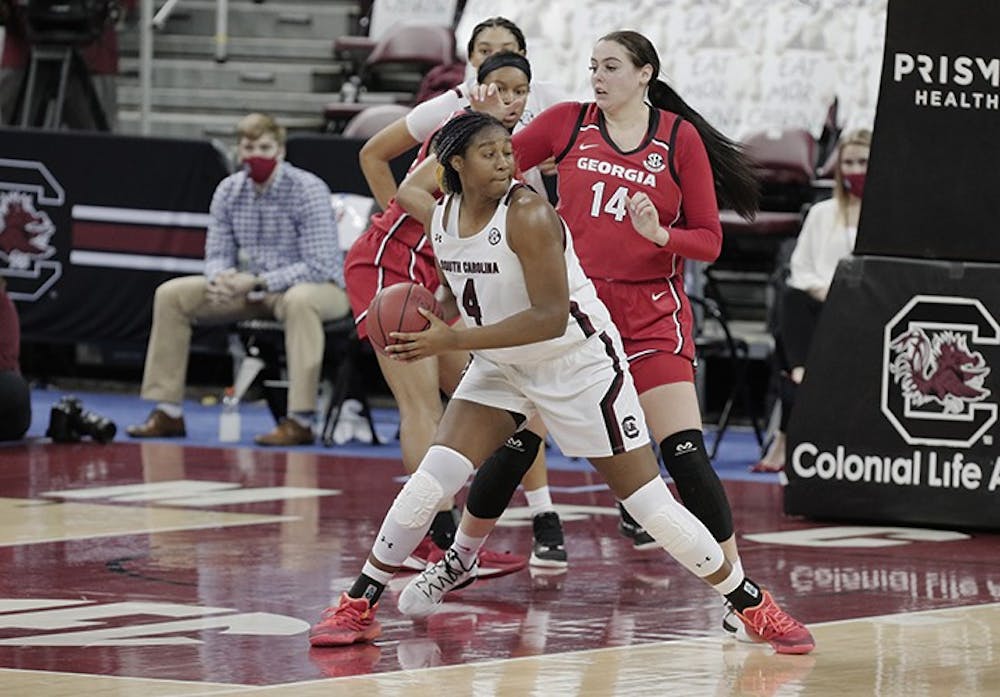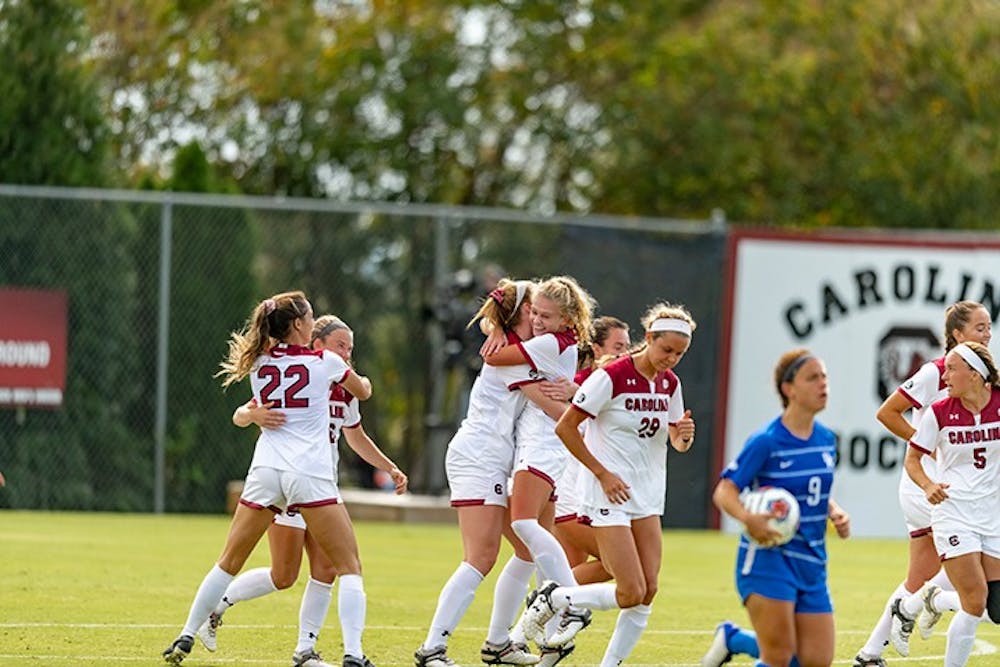Female athletes face challenges of self-doubt, body image and a lack of role models in the media, but South Carolina student athletes Aliyah Boston, Silvia Chinellato and Catherine Barry want girls to know hard work is worth it, and there are opportunities to accomplish their dreams.
“All the goals you set for yourself, do not let anybody talk you out of that,” sophomore forward for Gamecock women's basketball Aliyah Boston said. “If people are, you need to associate yourself with better company.”

Boston grew up in the St. Thomas Virgin Islands and said she knew by age 11 that basketball was her sport. She mostly played against boys, and at such an early age, she said it helped her become mentally tough.
“I took playing against a lot of guys as a confidence booster,” Boston said. “They’re going to want to show out, so it’s like, ‘No, you’re not going to show out against me.’”
Graduate Gamecock tennis player Silvia Chinellato grew up in Italy and began playing tennis at 8 years old, she said. Like Boston, Chinellato also grew up competing against boys.
“I grew up in a culture where I was treated like a guy,” Chinellato said. “I honestly really enjoyed it; I don’t think I would have changed anything else. And I think it made me tougher in the harder situations.”
Catherine Barry, a freshman forward for Gamecock women's soccer, pointed out the need to stop comparing men’s and women’s sports directly because “women and men are not the same; that’s just the reality.” However, she said those differences shouldn’t “take away from how excellent the women are at what they do.”
“One of the biggest issues in this country is that, too often, we don’t include women in the conversation,” Barry said. “We have elite-level athletes who have developed themselves in their sports, but we don’t give them the platforms that they deserve to, kind of, advocate and also own their positions.”
Barry said the lack of platforms for successful female athletes can cause young girls to not have players to look up to in their sport.
Chinellato said as she started getting stronger as a result of intense tennis training, she struggled with body image. This transition of gaining more muscles can cause girls to start disliking their bodies, she said, but over time, she recognized the value in gaining muscles. Getting stronger and having the support system of her teammates motivated her to compete at her highest level.
When it comes to wrestling with insecurities in athletic skill, Boston encouraged girls to take a “nobody’s better than me” attitude, adding that it was her support system that got her through her self-doubts.
“My family, my coaches, from whichever level, it was always just encouraging,” Boston said. “It takes time, it does, but you just have to push through that wall.”
Barry said making the “natural decision” in middle school to invest in soccer came from her parents being the “biggest believers” in her dreams.
In her home state of Massachusetts, Barry’s parents took her to the Breakers women’s soccer games, Boston’s former professional team. Watching older girls and having the opportunity to meet Olympic gold medalists, such as Abby Wambach and Alex Morgan, when their teams visited to play, showed her playing professionally "was within reach for me if I kept working in the sport."
“If you have a dream to go to college, go to college; be a college athlete,” Chinellato said. “Every day, you will overcome something that is bigger than you.”
Barry said young female athletes need more access to female sports because “they’re not going to see the opportunities that they have in front of them” if coverage is limited or nonexistent.
“I hope that if any young girls are out there, they know that things are changing and that there will be a platform and opportunity for them to have major success doing what they love,” Barry said. “We all are going to push this to new levels.”

